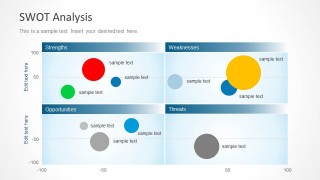Learn more how to embed presentation in WordPress
- Slides
- 21 slides
Published May 28, 2013 in
Health & Medicine
Direct Link :
UM Complexity Conference powerpoint Battle Fisher.ppt... Read more
Battle-Fisher, M. The structural and ethical complexity of private and public health. Accepted by Complex Systems Advanced Academic Workshop (CSAAW) at the Second Michigan Complexity Mini-Conference, University Of Michigan- Center for the Study of Complex Systems (CSCS), May 13, 2013.
Copy and paste the code below into your blog post or website
Copy URL
Embed into WordPress (learn more)
Comments
comments powered by DisqusPresentation Slides & Transcript
Presentation Slides & Transcript
The science of medicine. The art of healing.
“The structural and ethical complexity of private and public health”
Michele Battle-Fisher, MPH, MA
Instructor, Community Health
2013 University of Michigan Mini-Complexity Conference
May 13, 2013
Synopsis
What is public and what is private, anyway?
“Complexity” appears as a dance between the directives and choices of the public to save collective lives and the private sphere “lives” themselves collected together as the “population”.
This analysis ecologically examines a reconceptualization of organ donation and health in general.
The big question in “structural” dance etiquette?
“Lead and follow”
(Limited?) Moves based on cues from the network
Partner dancing requires “real-time coordination between a human leader and follower”, and resembles other decentralized systems with “supervisory control & coordination of agent teams” (Gentry & Feron, 2004).
Give and take among all agents toward a collective end result.
In 150 words or less…
Effective public health action requires that the private sphere be under the watch of the public for the sake of the society as a whole.
Public health is borne of the personal affliction of illness that becomes nested as a “public” incidence (Battle-Fisher, 2010).
Habermas (1989)- to understand the “public sphere” in its present form, we must examine changes in organizational structure and the role of public health...
We must look at complexity.
Agents at play
Agents negotiating health in real-time
Unknown force agents of the “public” that also play a hand, perhaps unbeknownst to the main agents.
Habermas
Habermas (1989) - public sphere born of the private.
Private Health for the sake of the patient and society must become public.
Habermas- the public sphere “blooms from a historic moment” (1989).
Habermas (1989) calls for public sphere blooming independent of government control.
We are in your beeswax for a reason.
The “refeudalization of society”, according to Habermas (1989), is typified by the blurring of state interests (i.e. performed by public health) through intervening into private lives of a “society”.
Call for societal balance
Jeffery (1989) highlights that societal balance that must be satisfied in approaching population level health concerns from two vantages: one as the individualized risk and the other offering the population level effect as a kind of statistically defined “solidarity”.
I say---
We change. We learn. We relate. We digress. We abstain. We act. We communicate or not. We become ill, privately and as a networked, overlapping publics.
Ecological is the way to go
Habermas (1989)- in order to begin to understand the public sphere in its present form, analysis must begin with examining changes in ecological structure.
Ecological models in health are not in themselves new and have sought to frame health predictors within a more realistic context in which health decisions are made and supported (see McLeroy et al., 1988; Stokols, 1996).
“Our” kidney
In a struggle of autonomy within the collective (Battle-Fisher, 2010), solidarity and the health of the network become remarkably important.
Within a civil society, the historical event of the need for a kidney catapults ESRD into the public sphere.
It becomes an undulating, changing ecology of networks in the kidney narrative.
Ethics in citizenship
Citizenship does become on one level a dichotomous label of pro versus con donation.
Allegiance and ethical malleability may change over time.
While Aristotle poses restricting on citizenship with no opt-out escape clause, ethical consensus might be equated with allegiance to the “polis” (Aristotle, 1991).
Solidarity and autonomy
Citizenship as a public and private citizen requires retooling of our understanding of self-determination and autonomy.
There will need to be a global definition beyond a “declaration of good will” (solidarity) of Tischner (2005) to make sense of the effect of cohesion on collective decisions and behaviors.
Solidarity as “cohesion”
As the polis
Can an individual be expelled from the polis, the body of citizens?
The polis is the “population” at risk in public health, in this case, all citizens that are living within a boundary as defined by required by epidemiological surveillance (e.g. citizens of a bound neighborhood, city, state, or country).
Contrary to Aristotle’s requirement for active deliberation, in this case, morality of caregiving, silence may speak loader than voicing a position. Polis does not require consensus only debate (Habermas, 1989).
Dynamics in citizenship in terms of living donation (based on Battle-Fisher, 2010).
1) A “potential” that publicly agrees with donation in all cases (pro-donation) and supports all donation options including becoming a possible donor himself.
2) A “potential” that publicly agrees with donation in all cases (pro-donation) and but this kidney should come from someone else.
3) A “potential” that publicly agrees with donation in select cases but not in the case of the patient in question (e.g. “I know mama won’t take care of it so why bother?”, “Grandpa has lived a long productive life, why put him though this?”)
4) A “potential” that has not committed to either pro or con publicly (perhaps in fear of reaction from others in the network)
5) A “potential” that has committed to con publicly.
In conclusion,
Ecologically, the private sphere should be characterized as finite and egocentric (framed around the narrative of the ESRD patient).
The patient still owns his or her ESRD experience- the pain, the damaged organ, the fear, the emotions.
Kenneth Burke (1966)- there must be a “NOT public” in order for “public” to have meaning.
Citizenship is a duality of private and public, each reliant on the other for meaning that becomes negotiated for the sake of the public’s health.
References
Aristotle (1991). Aristotle, On Rhetoric. A Theory of Civic Discourse. Translated by Kennedy, G. New York: Oxford University Press.
Battle-Fisher, M. (2010). Organ donation ethics: are Donors Autonomous within Collective networks? [electronic] Online Journal of Health Ethics. 6(2). Retrieved Dec. 2011 from http://ojhe.org/.
Burke, K. (1966) Language as Symbolic Action: Essays on Life, Literature, and Method. Berkeley: University of California Press.
Gentry, S. & Feron, E. (2004). Musicality experiments in lead and follow dance. In Systems, Man and Cybernetics, 2004 IEEE International Conference on, Vol. 1 (2004), pp. 984-988.
Habermas, J. (trans 1989) The Structural Transformation of the Public Sphere: An Inquiry into a category of Bourgeois Society. Cambridge: Polity.
Jeffery, R. (1989). Risk behaviors and health: Contrasting individual and population perspectives. American Psychologist, 44(9), 1194-1202.
McLeroy, K., Bibeau, D., Steckler, A., & Glanz, K. (Winter 1988). An ecological perspective on Health Promotion Programs. Health Education Quarterly, 15(4), 351-77.
Stokols, D. (1996). Translating social ecological theory into guidelines for community health promotion. American Journal of Health Promotion, 10(4), 182-98.
Thank you for your attention!
Thank you to the organizers of this conference as well as the University of Michigan.
Contact information:
Michele Battle-Fisher, MPH, MA
Assistant Program Director and Instructor of Community Health
Wright State Boonshoft School of Medicine
Center for Global Health
3123 Research Blvd., Suite 200
Kettering, OH 45420
phone: 937-258-5557
fax: 937-258-5544
michele.battle-fisher@wright.edu
Blog: orgcomplexity.wordpress.com (Follow my blog and my Facebook page “Orgcomplexity”)
More Presentations

By mbattlefisher
Published May 28, 2013

By mbattlefisher
Published May 28, 2013

By mbattlefisher
Published May 28, 2013





